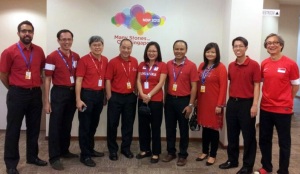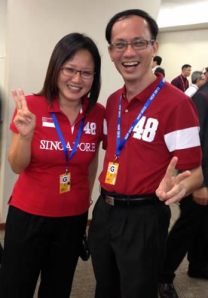On 8 July 2013, Parliament debated the Government’s response to the perennial haze problem. These are the questions I asked the Ministers and their responses (Part 1 of 3). The other two parts will be published over the next few days, together with questions and answers to my other Parliamentary questions during this sitting.
————————-
Mr Gerald Giam Yean Song (Non-Constituency Member):Madam, I have two questions for the Minister of Defence. First, one of the big causes of anxiety among Singaporeans was the unavailability of N95 masks at the height of the haze. How will the Government ensure in the future that its stockpile of face masks gets to the distribution points faster? Secondly, are there any laws in place that require retailers to ration the sale of essential products the moment such emergencies break out, rather than a few days after the fact, so as to mitigate the effects of hoarding, and to ensure that the genuinely vulnerable people get the necessary protection that they need?
Dr Ng Eng Hen: They are relevant questions. In terms of anti-hoarding laws, I will leave it to MTI to answer, because there are some Parliamentary Questions based on that subject. What have we learnt from the run on masks or the panic buying of masks: if you look at what happened, based on that particular day – 21 June — the number of people that really ought to have been wearing masks was nowhere near the masks that were sold. This was anticipated demand, exactly as the Member has said. They were thinking, “What if the haze lasts for week and I am the last one without a mask in Singapore?” That fed into a frenzy. Why was there a difficulty in getting the masks from these warehouses where we had 9 million to the distributors: there was a reason. The masks that were stocked up by MOH were not for the public. They were for their healthcare workers. By the way, that stockpile is quite important, in case the Middle East Respiratory Syndrome (MERS) viruses come here and infect us. So they were meant for health workers to make sure that there was sustainability and the way that they were stored, and so on and so forth, assumptions were made on a particular rate of use. There are very few systems that are prepared for a situation where from one day to the next, your demand of masks is 5,000 and the next day, 1 million. Very few distributors will stock that amount. If they do that as a business model, many of you would say that they would not survive. There are reasons for it.
Back to the Member’s question on how do we plan ahead: first, we have stocked up our masks, not only for the haze, but for contingencies like MERS or SARS or other infectious diseases. Secondly, MOH will be looking at packaging and see how we can roll it out in terms of our distributorship chains. All in all, it did not reflect badly on our system that we were able to react fairly quickly, including using the SAF to move the masks from the warehouses to the constituencies and retailers like NTUC Fairprice activating their supply chain to get the masks straight from the warehouses to their retail outlets including to other retailers, shows that there is a certain nimbleness or robustness in our system. We can do better but we did not do that badly.
————————-
Mr Gerald Giam Yean Song: On the subject of engaging all levels of government in Indonesia, since the Minister said that the ratification of the ASEAN Haze Agreement is being held up not by Indonesians’ central government, but by the Indonesian House of Representatives, the DPR, are there any plans to engage the Indonesian legislators directly to persuade them to ratify the agreement expeditiously, for example, by engaging them at the upcoming ASEAN Inter-Parliamentary Assembly?
Dr Vivian Balakrishnan: Unfortunately, my colleague from Foreign Affairs is not here but certainly, if Members of this House meet your colleagues in DPR, by all means, please persuade them of the wisdom of ratifying that agreement.
Gerald Giam
Non-constituency Member of Parliament
[Source]: Gerald Giam’s blog (http://geraldgiam.sg)




























